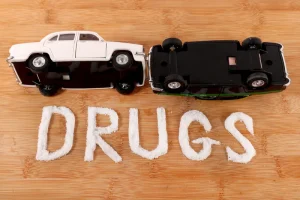Seeking professional help early can prevent a return to drinking. Behavioral therapies can help people develop skills to avoid and overcome triggers, such as stress, that might lead to drinking. Medications also can help deter drinking during times when individuals may be at greater risk of a return to drinking (e.g., divorce, death of a family member).
Drinking Alcohol To Relax
Addiction physicians and therapists in solo or group practices can also provide flexible outpatient care. These and other outpatient options may reduce stigma and other barriers to treatment. Telehealth specialty services and online support groups, for example, can allow people to maintain their routines and privacy and may encourage earlier acceptance of treatment. The NIAAA Alcohol Treatment Navigator can help you connect patients with the full range of evidence–based, professional alcohol treatment providers. Like many other substance use disorders, alcohol use disorder is a chronic and sometimes relapsing condition that reflects changes in the brain.
Articles Related to Alcoholism

The Department of Health and Human Services classifies alcohol as a carcinogen, a substance that plays a role in causing cancer. The medical community has linked alcohol with numerous types of cancer, such as cancers of the mouth, larynx, and esophagus. how to recognize signs and symptoms of alcoholism and alcohol abuse Here, we briefly share the basics about AUD, from risk to diagnosis to recovery. This article introduces a number of AUD topics that link to other Core articles for more detail. This is available from a range of support groups and professional services.
Outpatient Programs
- In outpatient programs, those working toward recovery receive addiction treatment while living at home or outside of a facility.
- Often, an alcoholic does not have the physical ability or mental clarity to recognize the signs of alcoholism himself.
- People with alcohol use disorder will continue to drink even when drinking causes negative consequences, like losing a job or destroying relationships with people they love.
- Medications also can deter drinking during times when individuals may be at greater risk of relapse (e.g., divorce, death of a family member).
- The most severe form of alcohol withdrawal is known as alcohol withdrawal delirium or delirium tremens, often referred to as the DTs.
- It may be in an inpatient or outpatient setting, and may require detoxification to manage withdrawal symptoms.
Researchers have found that cortisol levels in a person’s body increase steadily after middle-age, and that this age-related increase in stress may drive changes in the brain. A meta-analysis funded by the National Institute of Mental Health supports the notion that stress and anxiety rewire the brain in ways that can impact memory, decision-making, and mood. Mental health, or mental wellness, is essential to your overall health and quality of life. It affects how we think, feel, act, make choices, and relate to others. Managing social isolation, loneliness, stress, depression, and mood through medical and self-care is key to healthy aging. In recent years, scientists have developed and improved upon laboratory, imaging, and similar biological tests that help uncover and monitor signs of age-related disease.
What makes Yale Medicine’s approach to alcohol use disorder unique?
Symptoms of alcohol use disorder can look differently in each person. If you have attention deficit hyperactivity disorder (ADHD), for example, alcohol use disorder might make symptoms like impulsivity worse. Research suggests that easy access to substances, such as alcohol, can be a contributing factor to the number of high school students in the United States who live with alcohol use disorder. But not everyone who has alcohol use disorder will have the same symptoms.

If you or a loved one notices signs of substance use disorder, it’s important to contact a professional for advice and support. With dependence, something in the brain or body has changed; the body has adapted to the substance and needs it to continue functioning. Removing the substance leads to withdrawal because the body has become reliant on that substance to one degree or another. Those symptoms can be both physical and psychological, such as feelings of anxiety at the mere suggestion of going without the substance. In a world full of temptations, it’s possible for a person to become addicted to just about anything.
You care about your loved ones, but you can’t imagine your life without alcohol. Your drinking has led to trouble with your family or friends, or made problems worse, yet you continue to drink. This doesn’t make you a bad person, but it does make it more urgent that you look for help to change your habits and get your relationships back on track. Following diagnosis, a healthcare professional will work with a person to determine the best course of treatment.

